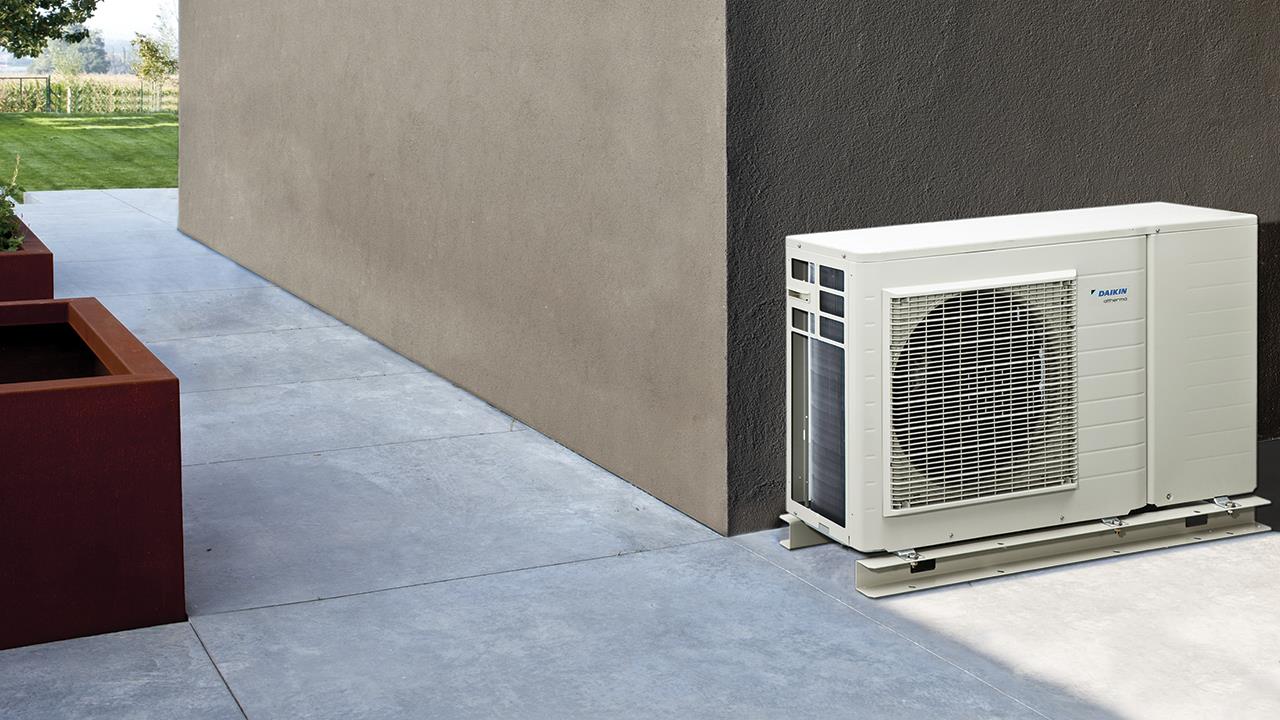

Richard Harvey, Category Director at Wolseley UK, explores the options for hybrid heating
systems, and what role heating and plumbing installers will play in the transition process.
The latest Budget indicated that the government will introduce commercial levies on gas and freeze levies on electricity from April 2022. While this doesn’t apply to domestic households, the decision indicates that sustainable methods of heating for domestic buildings are almost certainly are on the agenda.
With the government also stating that gas boilers will no longer be installed in newbuilds after 2025, and predicted changes to Part L of the Building Regulations likely to affect SAP scoring, developers will increasingly rely on renewable technology to meet these requirements. In turn, plumbing and heating installers must now begin to consider how these expected policies will impact their work, and how they can stay ahead of the curve as the UK heads towards renewable heating technologies.
All about hybrids
Hybrid heating systems combine traditional, fossil-fuelled systems with renewable sources, such as solar or heat pumps. Most renewable systems work on the same systems as conventional ones, so hybrid can be a suitable retrofit solution for those looking to reduce their carbon footprint and energy bills while continuing to take advantage of the Renewable Heat Incentive (RHI).
A large majority of the UK’s housing stock is dated and struggles to provide the thermal efficiency to warrant certain types of renewable systems. Hybrid heating and hot water systems can therefore provide the perfect combination to enable the system to operate efficiently, using the renewables as the primary energy source when conditions are suitable, switching to the conventional technology where additional loads are placed on the system.
With the correct training, most renewable systems on the market can be integrated fairly easily with existing systems, giving installers the opportunity to upskill and upsell hybrid solutions to their customers.
What are the benefits?
With sustainability and efficiency high on the agenda for installers and their customers alike, some homeowners are deciding to switch to renewables for environmental reasons. However, for others, the decision to switch may be purely financial, attempting to reduce utility bills.
A hybrid system enables the customer to tap into the most cost effective source of energy at any given time. As a result, homeowners can save money on their heating bills while contributing towards the decarbonisation of heat and net-zero target.
According to Evergreen Energy, customers who make the switch to heat pumps can shave up to 50% off their electricity bills and, for every £1 spent on heating, only 8p is wasted, depending on the fuel that’s replaced.
Government incentives
If hybrid heating technology is installed, homeowners could also be entitled to earn money through the government’s RHI scheme, providing metering as part of the installation.
The scheme is available to all, however homeowners in off-grid situations (without access to a gas mains) typically have the highest potential to save money on their energy bills and decrease their carbon emissions.
Training required
At this moment in time, to be eligible to earn money through the government’s RHI scheme, new systems need to be installed by MCS-accredited engineers.
Currently, installers are expected to expand on their current skillset to become MCS-certified. This is under review at present, however what is clear is that training is required to ensure that systems are properly specified, designed, and commissioned to perform optimally, so the homeowner gains the full benefits and performance from the system.
With hybrid heat pumps also using a combination of renewable energy and fossil fuels, unvented cylinders are integrated to maximise heat and to reduce running costs, which means installers also need an Unvented Hot Water qualification.
As well as these specific qualifications, many heat pump manufacturers supply training courses to ensure that installers are able to integrate their products into different traditional systems safely and efficiently. These courses are well worth looking into as installations can vary massively.
Getting ahead of the curve
As the UK heads closer towards its net-zero carbon target, it’s recommended that installers upskill themselves for renewables and gain further training to accommodate the different procedures. For businesses looking for apprentices, it’s worth investing in students whose training syllabus covers renewable energy.
With housing developers being pushed towards the installation of hybrid or fully renewable heating systems, it’s only a matter of time before fitting and maintaining these systems becomes a frequent line in every installer’s job log.
If you'd like to keep up-to-date with the latest developments in the heating and plumbing industry, why not subscribe to our weekly newsletters? Just click the button below and you can ensure all the latest industry news and new product information lands in your inbox every week.